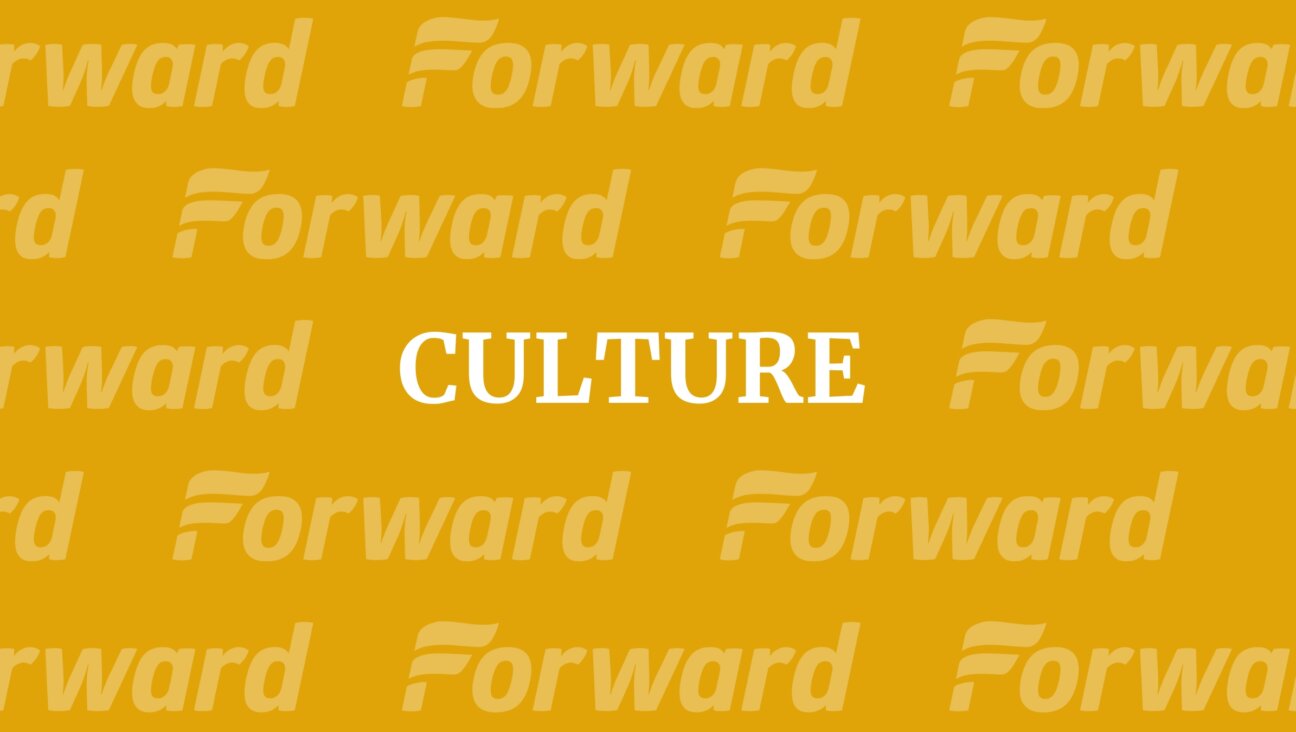Tahneer Oksman
By Tahneer Oksman
-

The Schmooze Feminist Hero Esther Broner Changed the ‘Order’ of Things
Summer is the cruelest cultural season. With that in mind, ICYMI (In Case You Missed It) is a new occasional series highlighting movies, TV shows, books, comics and everything else we might have missed in the past few months that we can catch up on in the next few. Early on in Lilly Rivlin’s 2013…
-

Food Hooked on Meat: a Nice Jewish Girl’s Film on Bacon
“Why is a nice Jewish girl like me making a film about pigs and bacon?” Suzanne Wasserman the writer and director of the new documentary “Meat Hooked!” in the beginning of her movie. The question is a good one but not one that’s easily answered. Wasserman, who comes from a meat loving family, set out…
-

The Schmooze Friday Film: Sholem Aleichem’s ‘Bushels and Baskets of Stories’
Courtesy of Riverside Films “He wrote standing up… Standing, walking, running.” So Bel Kaufman, granddaughter of Sholem Aleichem, describes the world’s most influential Yiddish writer. “He would look off into the distance and chuckle, as if hearing what his characters were saying to him, and then he would write.” Joseph Dorman’s new documentary, “Sholem Aleichem:…
-

The Schmooze Of Women, Comics, and Reclaiming Jewish Stereotypes
While various critics have noted the strong influence that Jews have had on the creation of American comics, few have fully explored the role of Jewish women. Yet Jewish women have often been at the forefront of creative explorations in the graphic narrative form. And in many of their comics, Jewish identity is a fertile…
-

The Schmooze Friday Film: Amos Oz on Not Writing Universally
Courtesy of Yonathan & Masha Films Yonathan and Masha Zur’s recent documentary “Amos Oz: The Nature of Dreams,” screening May 17 at the New York Israel Film Festival, expertly circles around the question: What is the place of politics in literature, and vice versa? For Oz, the two cannot be disentangled. “To write what they…
-

The Schmooze Friday Film: Stalking Grace
In a 2007 obituary for Grace Paley published in the New York Times, Margalit Fox wrote that “Ms. Paley was among the earliest American writers to explore the lives of women — mostly Jewish, mostly New Yorkers — in all their dailiness.” Lilly Rivlin’s recent documentary, “Grace Paley: Collected Shorts,” screening March 27 at the…
-
Culture Documenting a Sweatshop Cinderella: Q&A with Suzanne Wasserman
The short new documentary, “Sweatshop Cinderella,” captures the fascinating life story of the writer Anzia Yezierska. Best known for her 1925 novel, “Bread Givers,” Yezierska’s incredible life story involved a romance with philosopher John Dewey, as well as a brief stint in Hollywood. The documentary reveals fragments of the only known voice recording of Yezierska,…
Most Popular
- 1

News No Jews allowed: White supremacists are building a segregated community in Arkansas, but is it legal?
- 2

News Zohran Mamdani has represented Astoria’s Jews for 4 years. What do they think of him?
- 3

News Curtis Sliwa has a plan to beat Zohran Mamdani in NYC mayor’s race — and it starts with apologizing to Jews
- 4

Culture Barbra Streisand’s brand-new duet with Bob Dylan is a whole lot different than you might think
In Case You Missed It
-

Yiddish דאָקטוירים פֿון אַן אַנדער שניטDoctors of a different sort
די ווילנער דאָקטוירים יעקבֿ וויגאָדסקי און צמח שאַבאַד זענען אויך געווען געזעלשאַפֿטלעכע טוער.
-

Yiddish ווידעאָ: ווען ייִדיש האָט געקלונגען אין די גאַסן פֿון מעקסיקע VIDEO: When Yiddish rang throughout the streets of Mexico
יעקבֿ פֿינקלמאַן באַשרײַבט אויך זײַן לאַנגיאָריקן פֿאַך — ווי ער האָט צוגעשטעלט וויסן אין טעלעקאָמוניקאַציע איבער דער וועלט
-

Opinion Want to understand what’s wrong with the ‘pro-Palestine’ movement? This Palestinian can help
-

Fast Forward Boulder firebombing suspect’s family can be deported, court says
-
Shop the Forward Store
100% of profits support our journalism







